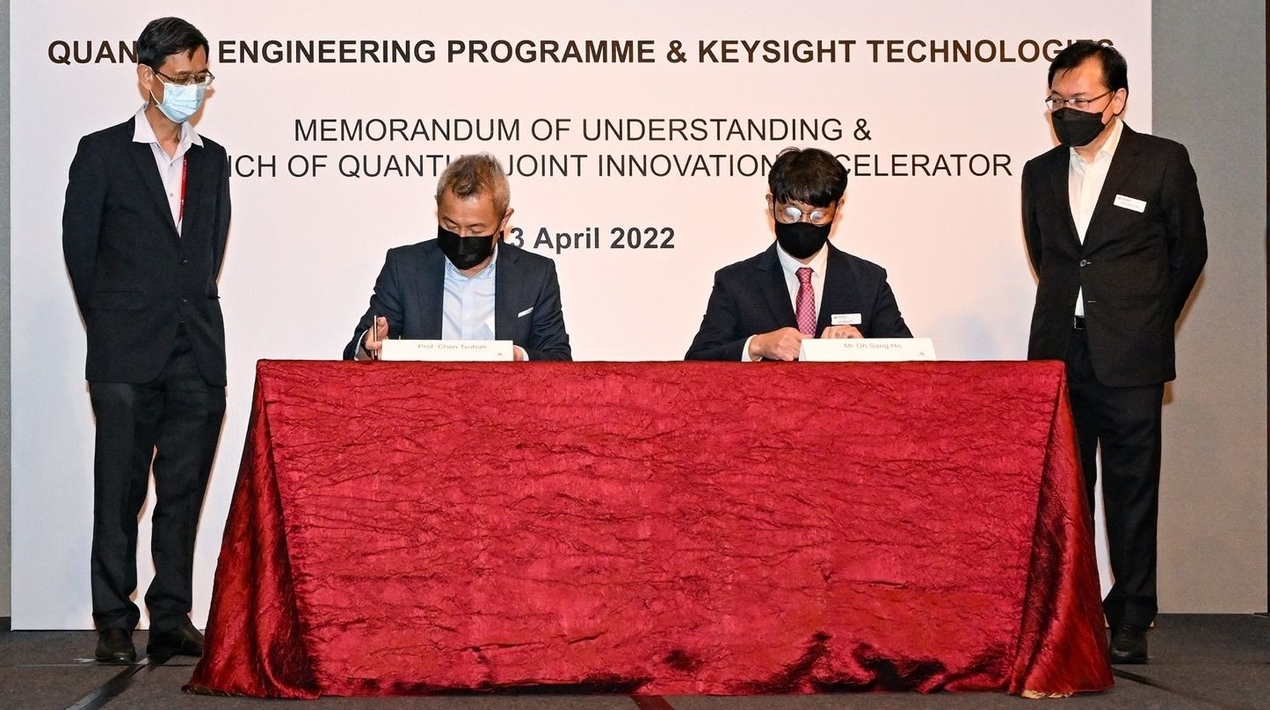
Singapore’s Quantum Engineering Programme (QEP) and a leading provider of advanced design and validation solutions have signed a memorandum of understanding (MoU) to collaborate in accelerating research, development, and education in quantum technologies.
Under the MoU, the two will closely cooperate in the development of quantum instrument packages, as well as the technologies that enable quantum systems to be scalable and deployable. They will establish a Quantum Joint Innovation Accelerator programme to make it easy for researchers participating in QEP to access software design tools and advanced test and measurement equipment. Researchers can apply to evaluate the provider’s measurement tools in their laboratories and access equipment hosted at its premises in Singapore.
QEP and the tech provider will establish a collaborative framework to accelerate research and development in the emerging quantum technology ecosystem. According to an official, the partnership will open up new frontiers and developments, which will propel industry innovations for years to come.
The QEP was launched in 2018 by the National Research Foundation, Singapore (NRF) and hosted at the National University of Singapore (NUS) to support quantum technologies research and ecosystem building. The programme funds projects in quantum computing, quantum communication and security, quantum sensing, and quantum foundry, which are expected to lead to practical uses. The solutions provider is well-positioned to provide modular and scalable quantum control systems, by leveraging the company’s expertise in advanced measurement equipment, qubit control solutions, and precise measurement instrumentation, which enable researchers to engineer and perhaps scale next-generation systems to harness the power of quantum computing and other quantum devices.
In February, QEP announced it would conduct nationwide trials of quantum-safe communication technologies that promise robust network security for critical infrastructure and companies handling sensitive data. The National Quantum-Safe Network (NQSN) will deploy commercial technologies for trials with government agencies and private companies, conduct an in-depth evaluation of security systems, and develop guidelines to support companies in adopting such technologies.
Hosted by NUS, the initiative will receive $8.5 million over three years. Collaborators will bring expertise, equipment, and use-cases to the project. As OpenGov Asia reported, the joint research team expects to have the first nodes up within a year. In parallel, they will establish a Quantum Security Lab to commence advanced quantum security vulnerability research and secure design. They will also organise workshops with potential end-users to better understand their needs and build awareness of the new technologies available.
Initial plans for the deployment are for ten network nodes to be installed across Singapore connected to fibre, including two at NUS, two at the Nanyang Technological University, Singapore (NTU Singapore), and others at government and private company premises.
The nodes will be connected to provide a public network that can act as a living lab for organisations wanting to experience quantum-safe communication technologies, and separable government and private networks trialling dedicated users’ applications. A further experimental node at NUS will make a free-space connection to the public network, developing technologies that could extend secure links to locations that cannot be connected to fibre or may even be moving, such as boats.
















